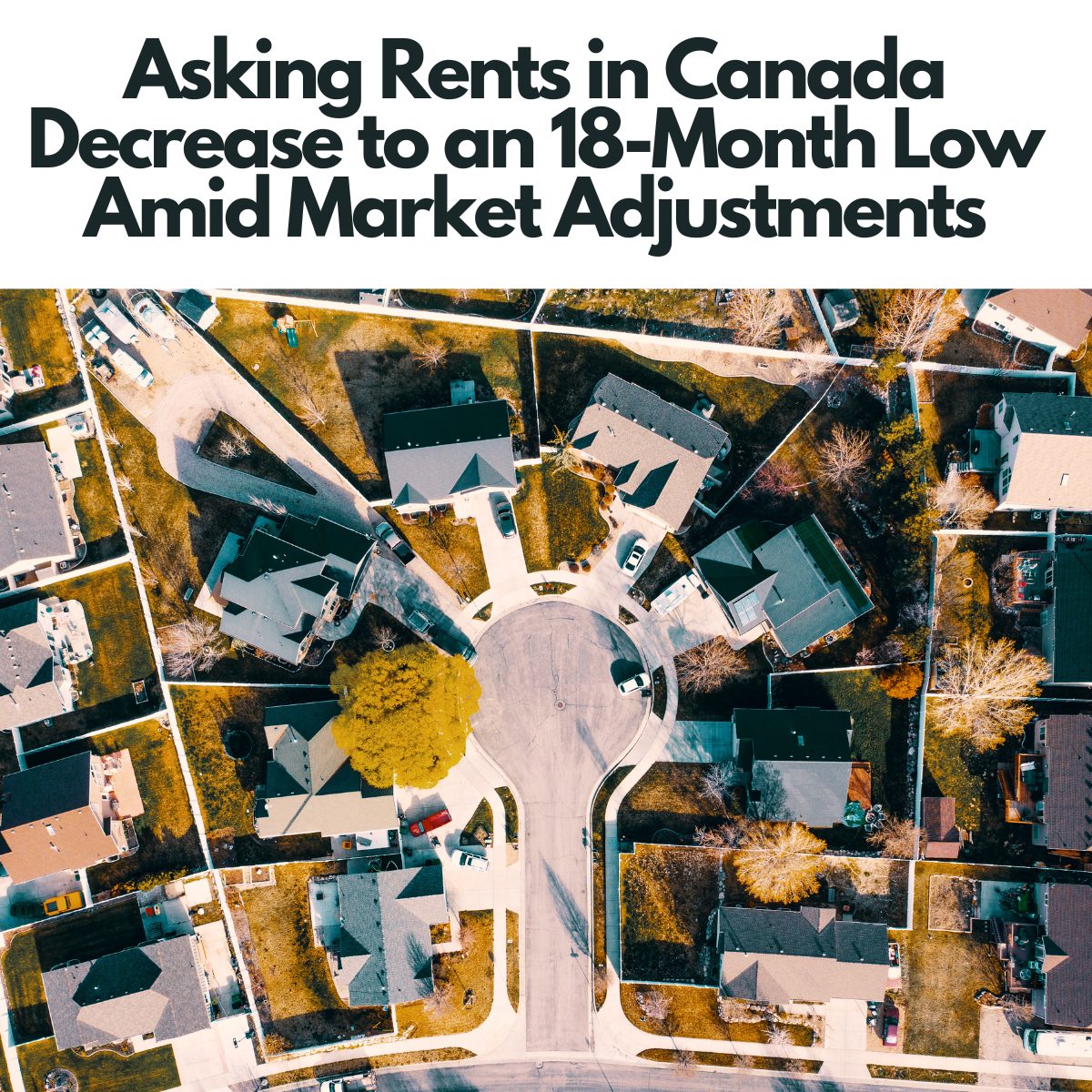The Canadian rental market is undergoing a notable shift, with asking rents hitting an 18-month low as of January 2025. According to the latest National Rent Report from Rentals.ca and Urbanation, the average asking rent for all residential properties fell to $2,100—marking a 4.4% annual decline and a $96 decrease compared to the previous year. This marks the fourth consecutive month of annual rent decreases, a stark contrast to the 38 months of continuous rent increases prior.
A Changing Rental Landscape
Despite recent declines, it’s important to note that rental prices are still up 5.2% compared to two years ago and remain 16.4% higher than three years ago. However, the current downward trend suggests an ongoing market adjustment that could bring more affordability for renters in the months ahead.
“The downward trend for rents in Canada accelerated during the first month of 2025. Heightened downside risks for the economy, combined with declining international population inflows and multi-decade highs for apartment completions, suggest rents will continue to weaken in the months ahead. This will result in improved affordability for renters,” said Shaun Hildebrand, President of Urbanation.
Where Are the Biggest Rent Declines?
The most significant declines were seen in the secondary rental market, with asking rents for condominium apartments dropping by 6.5% year-over-year to an average of $2,219. Meanwhile, rental rates for houses and townhomes fell by 8.9% to $2,144.
Purpose-built rental apartments experienced a milder decline of 1.7%, though certain unit types defied the trend. Studio apartments and three-bedroom units in purpose-built rental buildings remained in high demand, experiencing slight rent increases of 0.5% and 2.1%, respectively.
Regional Highlights: Ontario and B.C. See Notable Declines
Among the provinces, Ontario experienced the steepest rent declines, with apartment rents dropping 5.2% annually to an average of $2,329. British Columbia remained Canada’s most expensive rental market, despite a 2.6% annual decrease bringing the average asking rent for purpose-built and condominium apartments down to $2,463.
In contrast, some provinces saw rental increases. Alberta, Saskatchewan, and Manitoba recorded modest annual rent increases between 2-3%, reflecting sustained demand in these more affordable markets. Quebec saw near-stable rents with a 0.4% increase, while Nova Scotia rents dipped slightly by 0.7% year-over-year to $2,195.
Big City Rental Trends
Among Canada’s major cities, Toronto experienced the largest rent drop, with average apartment rents declining 7.6% year-over-year to $2,615, the lowest in 30 months. Calgary followed closely, with a 6.0% decline bringing the average rent to $1,925. Meanwhile, Vancouver saw its 14th consecutive month of rent declines, with an annual drop of 5.2% bringing the average rent to $2,896. Since its peak in July 2023 at $3,340, Vancouver’s rental rates have fallen by 13%, equating to a $443 per month reduction.
Changing Demand for Shared Housing
The supply of shared accommodations has grown significantly, leading to lower roommate rents. Listings for shared housing increased by 42% year-over-year in January, particularly in Calgary. This increased supply drove the national average asking rent for shared accommodations down by 7.6% to $933—the lowest level in 18 months. Alberta and Ontario saw the most significant declines, with roommate rents dropping 2.7% and 2.6%, respectively.
What This Means for Renters
For prospective tenants, this market shift represents an opportunity to secure rental housing at more affordable rates than in recent years. With increasing supply, particularly in shared accommodations and purpose-built rentals, renters may have more negotiating power and a wider range of options.
As the market continues to adjust, it will be important for both landlords and tenants to stay informed about regional trends and pricing shifts. If you’re considering a move or looking for investment opportunities in rental properties, understanding these dynamics can help you make well-informed decisions.
Final Thoughts
While Canada’s rental market has seen significant declines in recent months, affordability remains a challenge in many urban centers. However, with economic uncertainties, shifting population growth patterns, and an increase in available rental units, 2025 could be a year of continued rent stabilization—offering some relief for renters nationwide.
If you have questions about navigating the rental market or real estate investment opportunities, feel free to reach out for expert advice tailored to your needs.


 Facebook
Facebook
 X
X
 Pinterest
Pinterest
 Copy Link
Copy Link


